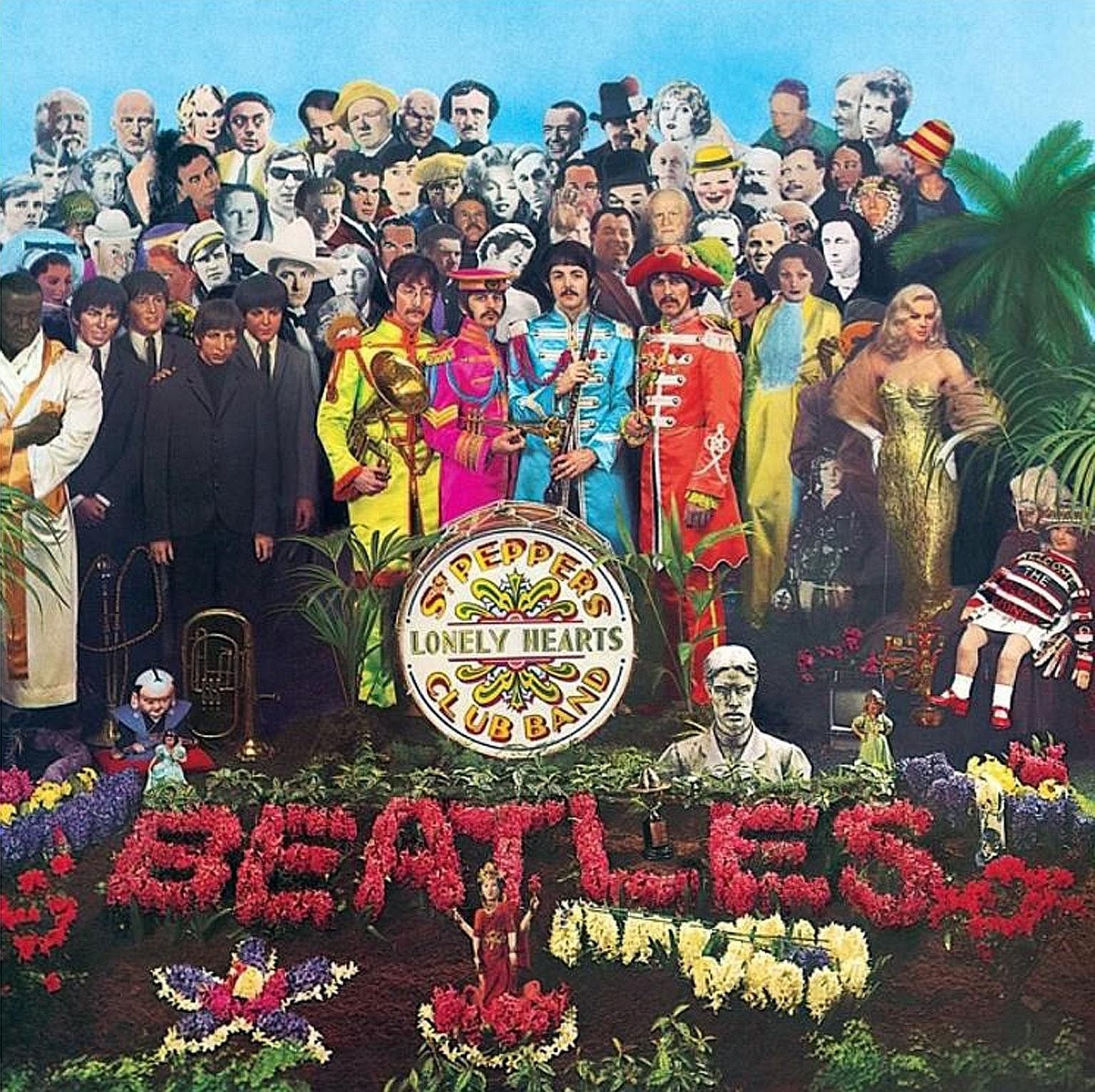NEW YORK • A half century after its release, The Beatles' Sgt Pepper's Lonely Hearts Club Band is a relic of a vanished era. Like a Faberge egg or a Persian miniature, it speaks of an irretrievable past, when time moved differently, craftsmanship involved bygone tools and art was experienced more rarely and with fewer distractions.
It's an analogue heirloom that's still resisting oblivion - perhaps because, even in its moment, it was already contemplating a broader sweep of time. The music on Sgt Pepper reached back far before rock as well as out into an unmapped cosmos, while its words - seesawing between Paul McCartney's affability and John Lennon's tartness - offered compassion for multiple generations.
We simply can't hear Sgt Pepper now the way it affected listeners on arrival in 1967. Its innovations and quirks have been too widely emulated, its oddities long since absorbed. Sounds that were initially startling - the Indian instruments and phrasing of George Harrison's Within You Without You, the tape-spliced steam-organ collage of Being For The Benefit Of Mr Kite!, the orchestral vastnesses of A Day In The Life - have taken on a patina of nostalgia.
Sgt Pepper and its many musical progeny have blurred into a broader memory of "psychedelia", a sonic vocabulary (available to current music-makers via sampling) that provides instant, predigested allusions to the 1960s. Meanwhile, the grand lesson of Sgt Pepper - that anything goes in the studio - has long since been taken for granted.
Sgt Pepper has been analysed, researched, oral-historied and dissected down to the minute differences between pressings and because the Beatles industry never misses an anniversary, it has been repeatedly reissued.
The 50th-anniversary deluxe version is exhaustive. It has been remastered once again to give the album a broader soundstage and crisper detail, giving more separation to individual voices and instruments.
The new box rightfully incorporates Strawberry Fields and Penny Lane, the masterpieces recorded alongside Sgt Pepper but released before the album. It also has outtakes, comprehensive reading material, video clips from 1967 and a documentary about making the album.

Sgt Pepper was not universally adored when it appeared. The New York Times panned it, not entirely incorrectly as "busy, hip and cluttered". As pop tastes have swung between elaborate musical edifices and back-to-basics reactions, Sgt Pepper has been by turns embraced, reviled and simply ignored.
But now that rock itself is being shunted towards the fringes of pop, it's a good time to free Sgt Pepper from the burden of either forecasting rock's eclectic future or pointing toward a fussy dead end.
It doesn't have to be "the most important rock 'n' roll album ever made", as Rolling Stone declared in 2012, or some wrongheaded counter-revolutionary coup against "real" rock 'n' roll. It's somewhere in between, juxtaposing the profound and the merely clever.
Although the album as a whole is synergistic, song by song, it's a mix of milestones, like Within You Without You, with meticulously wrought baubles like Lovely Rita.
Two of its most remarkable songs, Strawberry Fields and Penny Lane, aren't even on the original album. But with 50 years of hindsight, Sgt Pepper remains a joyful, whimsical and revelatory experiment. Even the album's slightest songs are full of musical and verbal twists.
For people who, like me, heard the album brand new in 1967, Sgt Pepper remains inseparable from its era. It was released on June 1, the beginning of the Summer of Love. It was a time of prosperity, naive optimism and giddy discovery, when the first baby boomers were just reaching their 20s and mind-expanding drugs had their most benign reputation.
In 1967, candy-coloured psychedelic pop and rock provided a short-lived but euphoric diversion from conflicts that would almost immediately resurface: the Vietnam War and America's racial tension.
Sgt Pepper remains tied to that brief moment of what many boomers remember as innocence and possibility - the feeling captured perfectly in Getting Better, even as Lennon taunts, "It can't get no worse."
Yet for The Beatles, that instant of cultural innocence was a strategic artistic opening. By 1967, they were by no means ingenuous. They had already been through exponentially expanding pop stardom, endless screaming crowds and the fierce American backlash against Lennon's flippant 1966 remark that The Beatles were "more popular than Jesus now".
After three years of hectic touring and recording, and of jaw- droppingly rapid development as songwriters amid the tempest, The Beatles decided to get off the road, where they couldn't hear themselves play, and to focus on making studio albums. They took five months - an eternity at the time, now barely a pause for a new wardrobe and sponsorship deal - to record the Sgt Pepper album, Strawberry Fields and Penny Lane.
With Revolver in 1966, they had embraced studio surrealism and partly jettisoned love songs, and for its successor, they would have more time to think and tinker. Yet they still worked amazingly fast, harnessing the era's primitive technology to pack wild ideas onto four-track tape. Each Sgt Pepper song creates its own sonic realm, far removed from the live Beatles' two guitars, bass and drums.
Yet while Sgt Pepper has been both praised and blamed for raising the technical and conceptual ante on rock, its best aspect was much harder to propagate. That was its impulsiveness, its lighthearted daring, its willingness to try the odd sound and the unexpected idea.
Listening to Sgt Pepper now, what comes through most immediately is not the pressure The Beatles put on themselves or the musicianly challenges they surmounted. It's the sheer improbability of the whole enterprise, still guaranteed to raise a smile 50 years on.
NYTIMES
